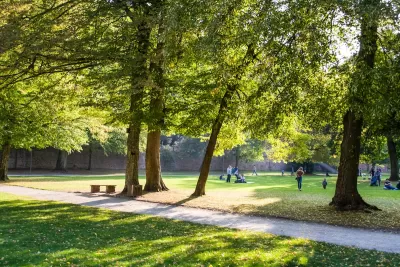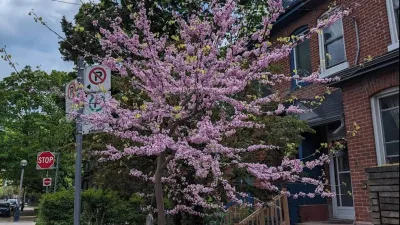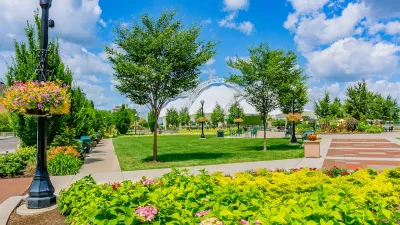Louisville's Green Heart project demonstrates that strategically planting trees in underserved neighborhoods can significantly reduce inflammation levels, highlighting the health benefits of urban greenery through a novel, data-driven approach.

In response to rising urban temperatures and air pollution, Louisville, Kentucky, has implemented several green initiatives, including a $12.6 million federal grant to expand tree cover in underserved neighborhoods. A significant part of this effort is the Green Heart Louisville project, a groundbreaking urban forestry study that monitored the health effects of planting 8,000 trees and shrubs in specific neighborhoods. The study found that residents in areas with new greenery had significantly lower levels of inflammation, a key factor in heart disease, cancer, and diabetes.
As reported by Linda Baker, the Green Heart Louisville project is notable for its scientific rigor, using a clinical trial design to study the health impacts of urban trees. The researchers focused on planting mature trees in areas with the highest air pollution levels, and their findings underscore the tangible health benefits of urban greenery. Led by the University of Louisville and the Nature Conservancy, this study marks the first large-scale effort to directly connect tree planting with public health data, revealing how thoughtful urban design can improve residents' well-being.
Looking forward, the study’s success may serve as a model for cities across the country facing similar challenges. With its focus on scientifically driven interventions, the project highlights the potential of trees as essential infrastructure for cooling and pollution mitigation, particularly in low-income areas. Louisville's leadership in this area could inspire other cities to prioritize urban greening as a tool for improving public health and addressing climate change.
FULL STORY: A City Finds Success Using 'Trees as Medicine'

Maui's Vacation Rental Debate Turns Ugly
Verbal attacks, misinformation campaigns and fistfights plague a high-stakes debate to convert thousands of vacation rentals into long-term housing.

Planetizen Federal Action Tracker
A weekly monitor of how Trump’s orders and actions are impacting planners and planning in America.

San Francisco Suspends Traffic Calming Amidst Record Deaths
Citing “a challenging fiscal landscape,” the city will cease the program on the heels of 42 traffic deaths, including 24 pedestrians.

Study: Anti-Homelessness Laws Don’t Work
Research shows that punitive measures that criminalized unhoused people don’t help reduce homelessness.

In U.S., Urban Gondolas Face Uphill Battle
Cities in Latin America and Europe have embraced aerial transitways — AKA gondolas — as sustainable, convenient urban transport, especially in tricky geographies. American cities have yet to catch up.

Detroit Says Problems With Property Tax Assessments are Fixed. Advocates Disagree.
With higher-valued properties under assessed and lower-valued properties over assessed, advocates say there's still a problem with Detroit's property tax system.
Urban Design for Planners 1: Software Tools
This six-course series explores essential urban design concepts using open source software and equips planners with the tools they need to participate fully in the urban design process.
Planning for Universal Design
Learn the tools for implementing Universal Design in planning regulations.
Heyer Gruel & Associates PA
JM Goldson LLC
Custer County Colorado
City of Camden Redevelopment Agency
City of Astoria
Transportation Research & Education Center (TREC) at Portland State University
Jefferson Parish Government
Camden Redevelopment Agency
City of Claremont





























